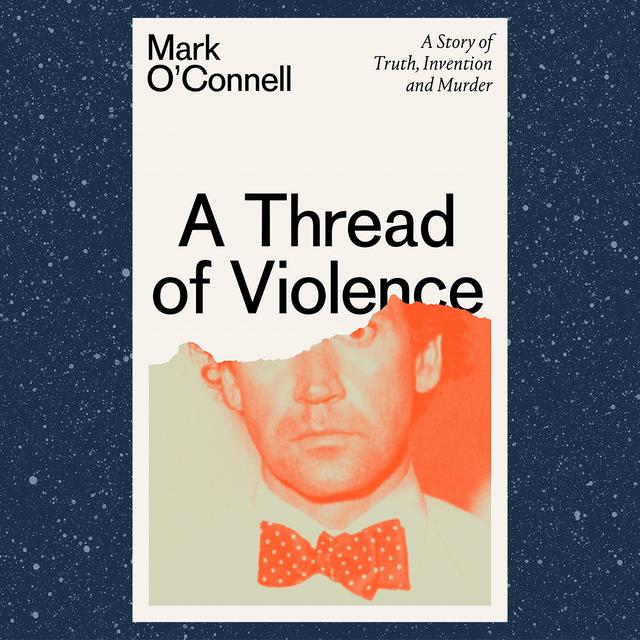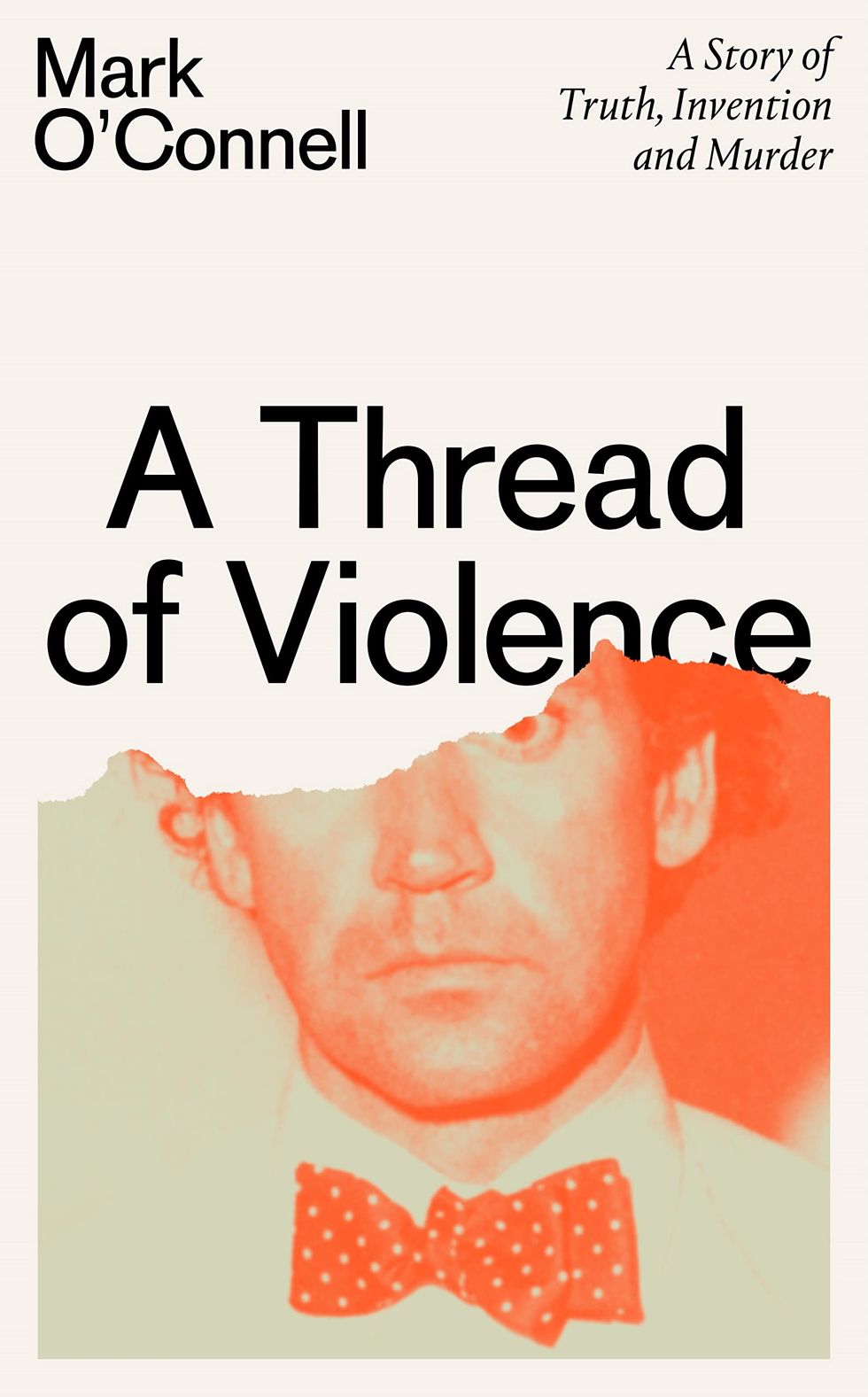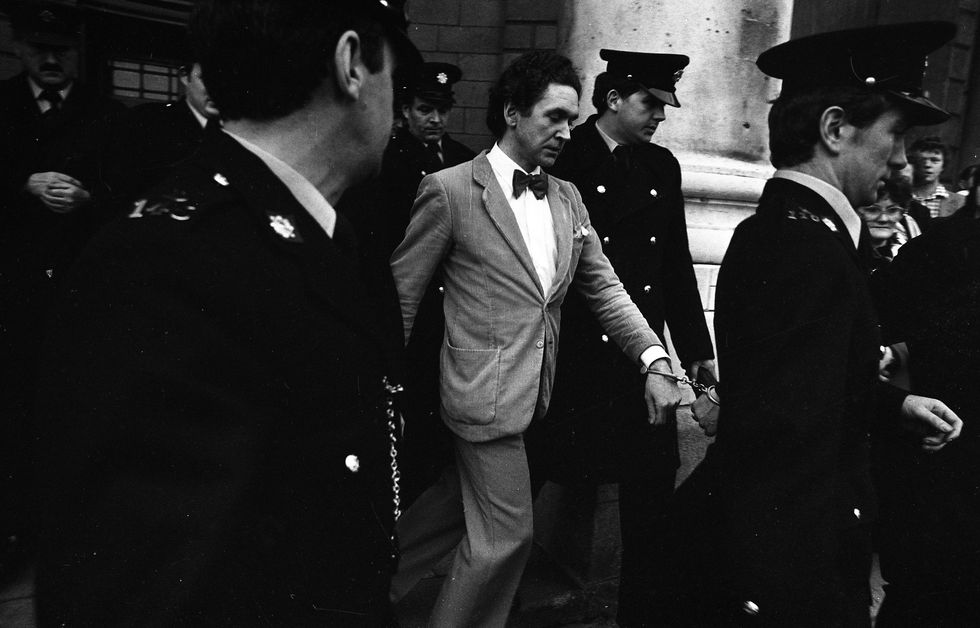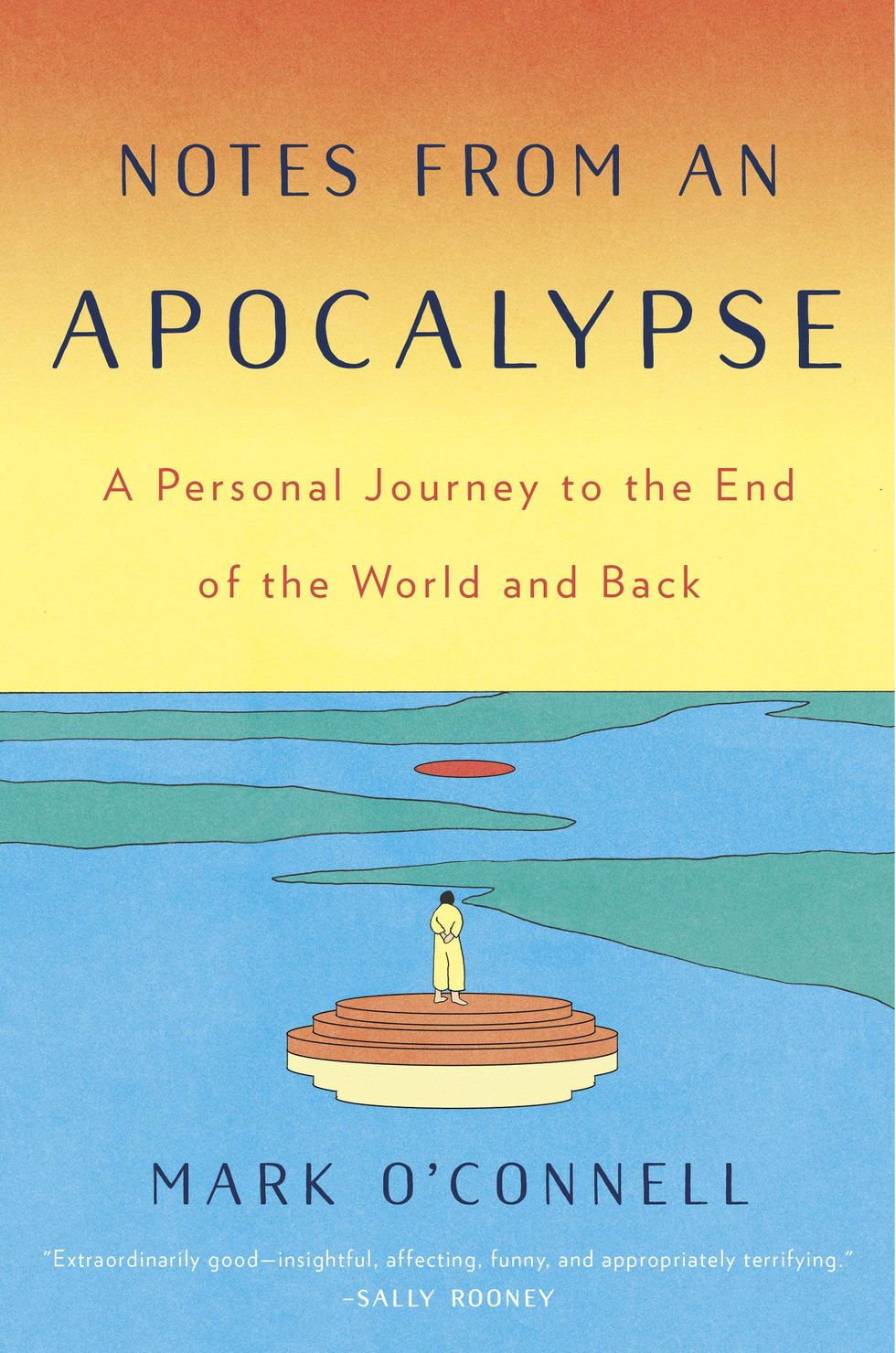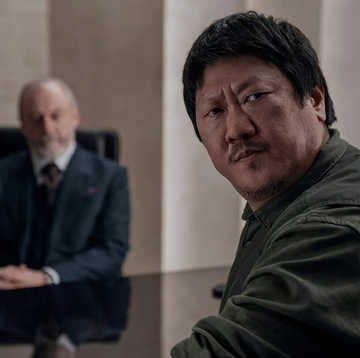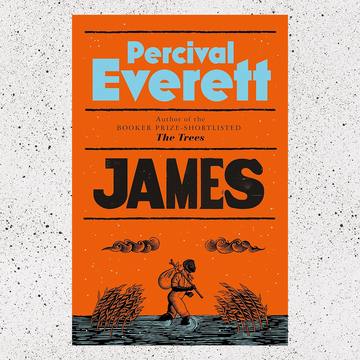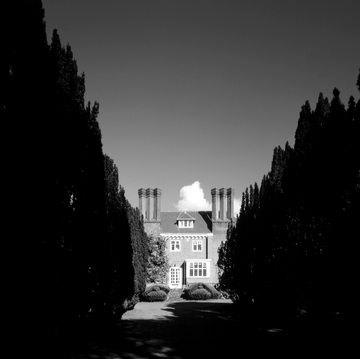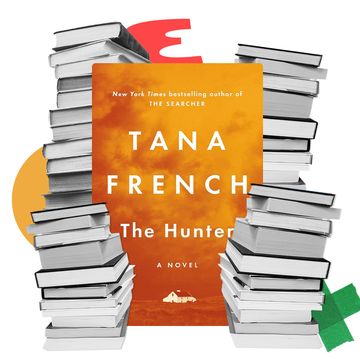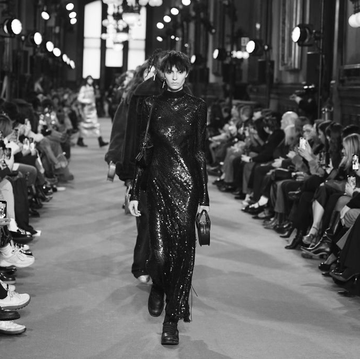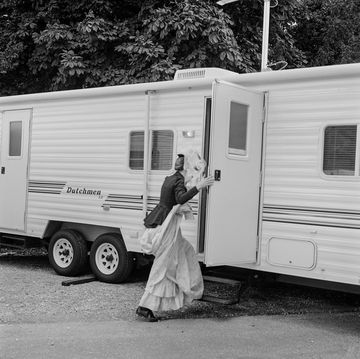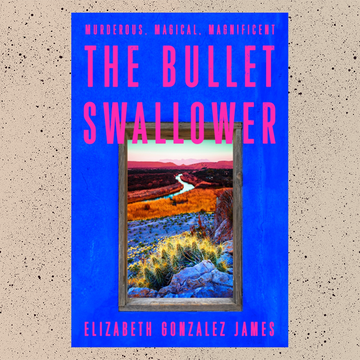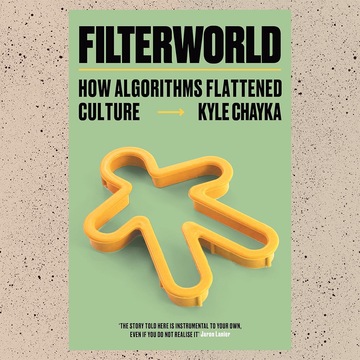In 1982, Malcolm Macarthur, an Irish aristocrat and heir, was in financial trouble. With a vague plan to rob a bank, he bought a crossbow, a tweed fisherman’s hat, and called his mother. Then he went on a crime spree, bludgeoning a nurse, shooting a farmer in the face, and leaving both to die. Three weeks later, the manhunt ended with Macarthur’s arrest. His hideout turned out to be the Dublin home of the Attorney General, which sparked a political scandal.
Author Mark O’Connell grew up in Ireland hearing stories about Macarthur. They sounded like urban legends. Macarthur had claimed he was after money, but that barely made sense. He was educated, privileged, and well-connected—there seemed to be many better ways to improve his financial situation. The more O’Connell learned about the crimes, the less he understood. A few years ago, O’Connell pieced together Macarthur’s daily routine, and the author approached the now-released murderer on the street. O’Connell knew they shared an interest in literature. After introducing himself, he pulled out a copy of The New York Review of Books that contained an article he had written. He offered the magazine to Macarthur, an attempt to connect via a bridge made of words. The approach worked. Macarthur agreed to talk.
In his new book, A Thread of Violence, O’Connell tells the story of Macarthur’s life and crimes. He is the first writer to have access to Macarthur for extended interviews, which spanned almost two years, but a book in the true crime genre sounds like a departure for the award-winning writer. O’Connell’s first book, Notes from an Apocalypse, is about how to live at the end of the world, and his second, To Be a Machine, is about how to be human. However, as we spoke over Zoom, it became clear that all his writing comes from the same place: a relentless and possibly obsessive willingness to follow his curiosity. This interview has been edited for length and clarity.
ESQUIRE: In Ireland, Macarthur’s story is renowned. The crimes occupy what you call "a mythic register.” Can you put them into context for those who aren’t from Ireland?
MARK O’CONNELL: My parents’ generation has memories of where they were when the murders happened and the trial, but for those younger than about 55, it’s a roll of the dice as to whether they will be intimately familiar. Macarthur’s story is embedded in the cultural memory of Dubliners and Irish people generally. Last summer, it was forty years since he was arrested. There's been a recent upsurge in things about his case. The BBC and The Irish Times have podcasts about it, for example. A book-length retelling of the case just came out. The hunger to hear more about the case is still there. It’s never far from the cultural conversation. This has to do with the combination of political scandal and the extraordinary figure of Macarthur himself, but the difficulty has been getting him to talk. My book is different in that Macarthur himself is present on the page. And there's an engagement with him as a person, which has never happened before.
You’re the first writer to talk to Macarthur?
He's been approached an endless number of times by filmmakers, documentarians, and podcasters. He’s always quite polite, but he ultimately says, “I can't talk about my case.” And it ends there. There's been all this noise around the case, but a silence at the centre. He's never really spoken a word about what he did, and he's never been represented in anything but the most shallow and caricatured way. It's all bow ties and tweed jackets and posh accents. I wanted to get past that in any way that I could.
When you approached MacArthur, you said he agreed to talk, as you “share a language”?
Before I started speaking to him, I knew that Macarthur was a very educated person. I knew that he had certain cultural references and proclivities from things that I'd heard. I knew that he was really well-read. And that, obviously, is not unheard of. Murderers and violent criminals come from all walks of life, but it drew me in. I was drawn by his articulacy and intellectualism. I thought he might respond to me in a way that he hadn't responded to other people who wanted to write about him before.
I knew that he was fascinated by the novels of the author John Banville and the writing he did around Macarthur. So, I thought, this is a set of shared references and a shared language. To be as blunt as I am in the book, I felt I could flatter his intellectual vanity by presenting myself in a certain way, and that ultimately did work.
You mentioned John Banville, the Booker Prize-winning author who wrote a Macarthur-like character in his critically acclaimed novel, The Book of Evidence. You are a Banville scholar. Did fiction help you crack this case?
Fiction is absolutely at the centre of the book. I couldn't have written about this case had I not done a Ph.D. on the novels of John Banville. That former life is crucial to the book itself, and to my desire to write it in the first place. There was difficulty in separating Macarthur from his fictional representation, but I was aware of the necessity of not fictionalising.
Did fiction help you gain insight into Macarthur’s mind?
When we were talking, Macarthur was almost helplessly fictionalising himself. He would go back over things we had discussed before, things he had told me, or things we had experienced together. Sometimes he gave altered versions of those things. The reading and the interpretation of fiction helped me to understand this and our relationship. The book is, in many ways, an attempt to grapple with my frustration with the difficulty of getting past these altered versions. I was in this hallway of mirrors in terms of Macarthur’s weirdly fictionalized representation of himself. I wouldn't say that I write as a literary critic, but that ethic of reading is present throughout the book. Literary criticism can be a tool for interpreting the world and for living.
Most of your interviews with Macarthur took place in his apartment. What was it like to be there?
We talked a lot on the phone, but most of that was not recorded. It was largely off the record. So yes, most of what’s in the book did take place in his flat. It was close in a very direct sense. It was a small room and quite dim. It was a lot of hours, a lot of days, and a lot of afternoons over the course of almost two years. And a lot of repetition. I think I give some sense of that in the book. It's a claustrophobic book in that sense—endless conversations in this one room.
Perhaps it was more claustrophobic for you than it is for the reader?
He's an eloquent man. He's not always interesting. When you interview people, ninety percent of what you get is irrelevant, but the ten percent I did get was this incredible gift. Macarthur speaks in this extraordinary way. I would transcribe our interviews afterwards and just be stunned by the oddity and strange brilliance with which he expressed himself. I would be texting friends, other writers, and saying, “Look at this.”
At one point during the interviews, you called a friend who told you to stop talking about Macarthur, “as… if he was in fact just a character you created.”
That comment took the wind out of my sails. So many relationships are about power, imbalances of power, and negotiations of those imbalances. I'm sort of morally tortured about so many aspects of the telling of the story. That continues outside of the writing of the book. It's a difficult relationship. It was my wife who said very early on, when Macarthur agreed to talk to me, “He's given you this extraordinary gift.” It's a very dark kind of gift, but he gave me his story and his voice.
As your conversations with Macarthur continued, did your relationship change?
To put it in crude, stark terms, at the beginning, Macarthur had all the power. He could say yes or no to my request. And then he started talking. The more Macarthur talked, the more power I had, and the more of his story I had. It's been that way ever since, but I'm hyper-conscious of the fact that, as with you and I, there’s a third person in this room. Macarthur is present in the conversation, because everything I say affects him, whether it's in a legal sense or just in a personal sense.
Was there ever tension between you and Macarthur?
I talk about being a prospector at one point in the book, which is a self-revealing metaphor. It captures this sense of guilt about the process of extracting Macarthur’s story, as well as telling the story of people who were murdered. It's sort of like panning. You're sitting at the river and panning for nuggets of gold. You spend a long time sifting out the mud and the silt, but the gold is there.
In a statement, Macarthur described approaching one of the people he murdered. He pointed a gun at her and told her to get into a car. In his telling, she was calm and asked, “Is this for real?” Macarthur answered, “Yes it is.’” What’s the significance of this exchange?
It speaks to so many of the themes of the book. It also speaks to how people didn't know how to take Macarthur. He was the most unlikely murderer and the most unlikely violent criminal. That still persists in the public perception. He’s this quite handsome man with a bow tie and a cultured accent. So yes, I was really haunted by that line. It's so strange and heartbreaking. It’s simple, but also enigmatic, and an expression of shock. I was touched and haunted by it.
When I first picked up the book, I wondered about how you placed a murderer’s voice at the centre of the story. In recent years, many storytellers are attempting to find balance by including more testimony from the victim’s perspective. Tell me about your approach.
The families of the Macarthur victims don't talk anymore. They have said everything they’re going to say about these crimes and how they were affected by them. I have to empathise and respect that. It’s probably a whole level of different trauma, having been through something like that, to constantly see your loved one’s death turned into different kinds of stories and salacious television documentaries every few years. I don't excuse myself from that category at all. But they weren't going to talk. They didn't even respond to my requests.
But you still had a book to write.
Part of me was kind of disappointed and frustrated by not getting a response. In another way, I felt there was a message there. Not that it was necessarily a deliberate message on the family’s part, but there was a coded message for me: it’s not my story. Their lives are not there for me to turn into a story. It was complex enough for me to turn Macarthur's life into a story, but then to turn his victims' lives into a subplot or a series of background details to make the story more vivid—that seemed morally questionable.
Ethically, it’s delicate, but I stand by the choice I made. Those people’s lives aren't my stories and they are not part of the Macarthur story. It had nothing to do with them other than that they were unfortunate enough to be murdered by him. I wanted to know what it was like to be a murderer or to have murdered. I wanted to know what it was like to live with that. I don't agree with the idea that we shouldn't tell the stories of people who've done evil things. All these things that happen are human. Macarthur, and people who have done worse things than him, are human beings too. And that's worth investigating. I don't know how successful I was in illuminating the humanity of this man, but he's not a monster. He's a guy who did some horrible things. Those horrible things didn't come out of nowhere, but that doesn't make him a monster.
A Thread of Violence will be published this month. Has Macarthur read the book yet?
No, but soon. The big unknowable factor in all of this is that he hasn't read the book yet. There’s a time limit on that. He's going to read it soon.
It's a weird thing to have written an entire book about one person. I've had to think about Malcolm Macarthur and be honest about my feelings about this man—I have never been so honest about anyone in my life. It's a bizarre thing to do. I feel that we're kind of stuck with each other. It's hard to quantify, but he has told me his story, and I've made this book out of it. To me, it’s a standard journalist/subject relationship, in the sense that it's not a friendship. I'm not even sure that we like each other all that much, but we’re somehow bound to each other.
Claire Cameron's novels include The Last Neanderthal and The Bear. She writes for The New Yorker, The Globe and Mail, and The Guardian, among others.
